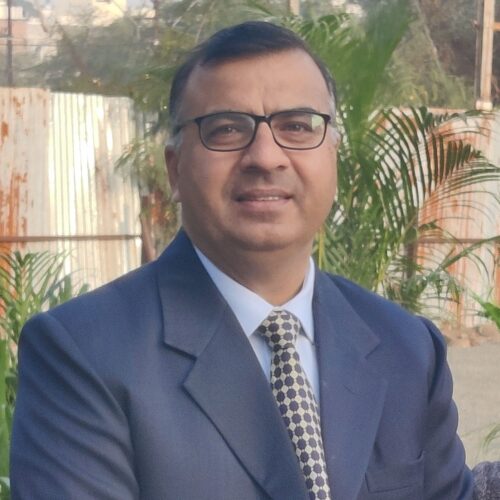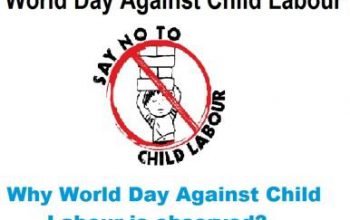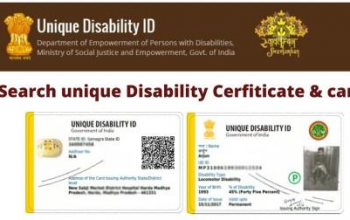Dr. Shailesh Sakalle*
Dr. Bijayalaxmi Panda**
Mr. Neeraj Jham***
This year the ‘World Breastfeeding Week’, 2023 is focused on “enabling breastfeeding: making a difference for working parents”. The theme of this year has focused attention on ensuring early initiation of breastfeeding[1] within one hour after birth in both normal and C-section deliveries. The World Health Organization (WHO) recommends that all neonates be breastfed within one hour of birth. Various factors can effectively reduce neonatal mortality to greater levels, early initiation of breastfeeding is one of them and it has benefits for survival and beyond. Breastfeeding in the first hour of life is associated with a prolonged duration of breastfeeding and a reduction in infant mortality.
At the national level, there is progress in institutional delivery from 78.9 % (NFHS-4) to 88.6 % (NFHS-5) but the result in terms of early initiation of breastfeeding is low (only 0.2%) from 41.6 % (NFHS-4) to 41.8% (NFHS-5). In Madhya Pradesh NFHS -5 data shows that only 41% of children breastfed within one hour of birth though it has increased from 34 %. But there is still a lot of effort required at the facility and community level to support and promote breastfeeding, mainly early initiation. Therefore, the Ministry of Women and Child Development issued directives on various activities increasing early initiation of breastfeeding focusing on male engagement.
The MoWCD emphasized advocating the use of MCP cards as a family welfare tool for the promotion of breastfeeding and IYCF practices. It also mentioned counseling to lactating/breastfeeding mothers for regular intake of IFA (IFA -Red) for 180 days along with the use of posters, and IEC in the local language, counseling on breastfeeding to women who just delivered but focus should be on all pregnant women on the importance of colostrum and early initiation of breastfeeding at facility and community level both. The involvement of front-line workers, community stakeholders, elected representatives, SHGs, front-line workers, and supervisors is extremely crucial for creating awareness through clear information. Organizing continuous webinars, training and workshops for front-line workers also provide an opportunity to gain knowledge and information to be disseminated to the beneficiaries in the community on IYCF/Breastfeeding.
To support this, WCD[2], MP issued a state directive for different activities at the district level. This is well planned, and regular meetings are conducted with state officials and Development partners in engaging different activities such as media engagement, documentary or reel on BF, blog or article writing, and an online session by experts from state and national levels. It also focused on how to engage youth in the colleges to promote male engagement in breastfeeding. Also, there are several planned activities like awareness rallies, slogans, poster-making competitions, Home Based Neonatal Care (HBNC), meetings at VHND, and counseling on myths related to breastfeeding and use of different community forums through the involvement of front-line warriors.
In Madhya Pradesh, a guideline has been released on family participatory care for enhancing the involvement of families in infant care services, especially at SNCU, NBSU, PNC ward, and newborn children[3]. Through reviews of literature, national and state level guidelines, and discussion in the meetings organized by WCD and ideas coming from Development partners it was focused on male engagement and family participation in IYCF practices, breastfeeding, and 1000 days approach to promote early initiation of breastfeeding at both facility and community level.
There are many cultural practices, myths, misconceptions, and beliefs that influence the ability of most mothers to initiate breastfeeding within one hour after birth, practice EBF, and prolong the duration of breastfeeding[4]. Mothers perceive that breastmilk does not contain enough water to satisfy the thirst of babies. So, they give them water after feeding them[5]. From the reviews, it was also found women and their husbands support formula milk or bottled milk due to easy access and comfort. They also believe it enables infants to grow faster, bigger, and chubbier than when solely fed on breastmilk. The woman could get relief and the partner could participate more in the care of the child. “I support bottle feeding if you find it mentally straining. It is easier to get assistance if bottle feeding is an option” from the study[6]. Therefore, we need to focus on counselling on the strict prohibition of formula milk or outside milk because, in the long run, it hinders the brain development of the child. The focus is also on Counselling and motivating male members and family by showing examples or stories of other parents for supporting breastfeeding in a positive manner. The need for FLWs to be well-informed about cultural practices and misconceptions that act as barriers to EBF has been documented in the literature. This information can guide FLWs in developing interventions such as health talks that are culturally sensitive[7].
Apart from the Government, the role of development partners is equally important to increase the early initiation of breastfeeding. The Antara Foundation Organization has been continuously engaged in different districts of intervention areas of Madhya Pradesh at the community level and facility level for promoting maternal and child health nutrition with the support of the Health and WCD departments. This year also during WBW 2023 as per the state directives, we focused on different interactive sessions with beneficiaries, front-line workers at VHND, Sub health centres, AWCs, and facilities by using different games, slogans, rangoli, and videos for increasing motivation and awareness of pregnant and lactating mothers. Apart from these activities, we organized Focus group discussions with beneficiaries on male engagement and family support. Through blog writing and media engagement, we have created a lot of awareness at the block, district, and state levels. The Antara Foundation also participated in the national-level webinar on the important role of service providers in supporting and promoting early initiation of breastfeeding and exclusive breastfeeding. To Conclude, the involvement of front-line warriors has a crucial role in Interpersonal counseling on male engagement in breastfeeding and IYCF practices by ensuring male participation at all community platforms – Village Health Sanitation Nutrition Day (VHSND), home visits under HBNC and HBYC, routine immunization sessions, and ANC/PNC visits.
………………………………………………………………………………………………………………………………………………….
*Dr. Shailesh Sakalle, Deputy Director, ASHA Cell, National Health Mission, Bhopal, Madhya Pradesh

**Dr. Bijayalaxmi Panda, State Coordinator- Partnership, The Antara Foundation, Bhopal, Madhya Pradesh

*** Neeraj Jham, Director -Programme, The Antara Foundation, Delhi

[1] Ministry of Women and Child Development, POSHAN Abhiyaan. Guidelines on Celebrating World Breastfeeding Week, 2023, 26th July 2023.
[2] WCD, MP on World Breast Feeding Week as on 28th July 2023.
[3]National Health Mission, Family participatory care practices on 26th September 2022, Bhopal, Madhya Pradesh
[4] Wanjohi M, Griffiths P, Wekesah F, Muriuki P, Muhia N, Musoke RN, et al. Sociocultural factors influencing breastfeeding practices in two slums in Nairobi, Kenya. International Breastfeeding Journal. 2016; 12(1): 5–10.
[5] https://www.ncbi.nlm.nih.gov/pmc/articles/PMC7498105/ accessed on 5th August 2023
[6] Online perceptions of mother about breastfeeding and introducing formula: qualitative study, JMIR public health surveil, https://www.ncbi.nlm.nih.gov/pmc/articles/PMC5707429/accessed on 30th July 2023
[7] https://www.ncbi.nlm.nih.gov/pmc/articles/PMC7498105/ accesses on 5th August 2023


